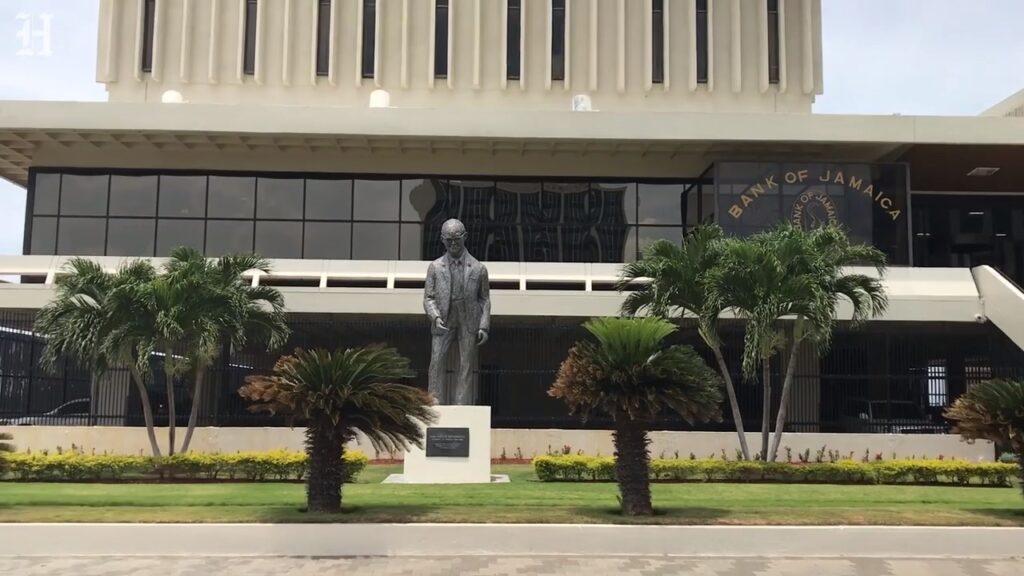
Intensified monitoring of the local financial system since COVID-19
There has been an escalation in credit exposures and the risks associated with debt repayment by individuals and businesses within Jamaica’s financial system.
This is the latest findings from stress testing exercises carried out by the Bank of Jamaica (BOJ), which regulates the island’s financial system as well as the assessment of the Financial System Stability Committee (FSSC), which is a statutory committee established under the Bank of Jamaica Act.
In its latest review of the BOJ’s Macro-prudential Policy Report, the FSSC notes that “while Jamaica has continued to maintain adequate capital and liquidity, the initial shock associated with COVID 19 have resulted in simultaneous declines across asset markets.”
This has led to significant encashment demands thus placing liquidity constraints on some financial entities. The FSSC, which is charged with the mandate of reviewing developments in the financial system and the economic environment, has reviewed three of the BOJ’s periodic Macro-prudential Policy Reports since the onset of the COVIS-19 pandemic in mid-March 2020.
In its latest review on October 30, the FCC concludes that “there has also been a significant fall-off in income and employment during the quarter immediately following the outbreak of the crisis, which has affected the credit quality of some borrowers. The pass-through effects of restrictions aimed at curtailing the spread of the virus have elevated risks to the financial system, which in turn implies further risks to the real economy, as it requires the financial sector to function normally by providing loans to stressed sectors.”

The FCCS points out that before the pandemic, the Jamaican financial system held capital and liquidity positions that were sufficient for withstanding large but plausible stress scenarios.
Since March 2020, deposit-taking institutions (DTIs) have offered loan repayment moratoria to households and businesses, to help manage their financing needs.
Besides, DTIs and entities designated as financial holding companies have suspended the distribution of profits by way of dividends to conserve capital. Thus far, the financial system has continued to maintain adequate capital and liquidity.
Increase information sharing among financial regulators
The monitoring of the financial system has been intensified while information sharing and collaboration between BOJ, the Financial Services Commission (FSC) and the Jamaica Deposit Insurance Corporation (JDIC) has increased.
In addition, since the onset of the pandemic, the various regulatory agencies have been maintaining close dialogue with their respective financial sector stakeholders.
The FCCS reports that “each agency has taken various actions to help buffer the impact of the COVID-19 induced economic recession. Bank of Jamaica continues to ensure that the banking system has adequate Jamaica dollar liquidity and that licensees remain sound.”
To help bolster market liquidity, “the BOJ inter-alia, reduced the Jamaica dollar and foreign currency cash reserve requirement cash reserve requirements of DTIs, instituted a bond-buying programme for Government of Jamaica and Bank of Jamaica securities and instituted special repurchase facility for credit unions,” the FCCS explained in its report of financial stability in Jamaica.
At the same time, the FSC implemented changes to its supervisory framework for non-deposit taking financial institutions.

This involved more frequent reporting cycles for licensees of the insurance and securities sectors for the assessment of early warning indicators associated with funding liquidity.
The FSC has also granted forbearance on investment limits for Collective Investment Schemes and has relaxed measures relating to large exposure limits, maturity mismatch in retail repo book and capital adequacy.
To ensure the adequacy of Jamaica’s deposit insurance fund to treat with any potential resolution activity, the JDIC has adjusted its investment strategy, reflected in its Investment Guidelines for fiscal year 2020/2021 by shortening the tenor on placements. This is in addition to increasing the deposit insurance coverage limit to $1.2 million from $600,000.00, effective August 31, 2020.
Financial market could remain bearish for a while
With the current macroeconomic projections indicating a significant decline in GDP for fiscal year 2020/21 financial markets could therefore remain bearish while balance sheet performance across the financial system could remain weak.
According to the FCCS, “a prolonged down-turn of the economy will imply worsening business and labor market conditions, thereby increasing the credit risk exposures of financial entities.”
Financial conditions could also be magnified if volatility in asset prices reemerges. These scenarios, the statutory financial stability monitoring entity, emphasizes the need for the continuation of a cautious approach by financial entities and the further shoring up of the system by regulators.
The FSSC expects that the proactive efforts by financial institutions, regulators and the Government of Jamaica will facilitate the continued soundness of the financial system and adequate liquidity in financial markets.
The FSSC will continue its regular review of financial system stability assessments and make recommendations to assist in the execution of Bank of Jamaica’s financial system stability mandate.

The FSSC expects to make its next public statement on these and other emerging issues in March 2021.
FSSC at a glance
The FSSC is also responsible for advising on macro-prudential policy, engaging with stakeholders, and providing oversight of financial stability assessments prepared by BOJ staff.
The financial stability mandate of the FSSC and the BOJ provides a statutory foundation for the identification, mitigation and control of systemic threats to financial system stability.
This is based on assessments of vulnerabilities within the financial system as a whole, as well as those arising from the links between the financial system and developments in other parts of the Jamaican economy and the global economy.
The BOJ in consultation with the FSSC, is empowered to develop prescriptive rules, standards and codes for financial institutions which specifically address gaps and imbalances that could threaten financial system stability as a whole.
This oversight complements and does not replace the responsibilities and authority of the BOJ and the FSC to supervise and regulate, respectively, the deposit-taking, insurance, securities and pensions industries. The BOJ and the FSC meet regularly with the JDIC and the Ministry of Finance on the Financial Regulatory Committee, a statutory committee also established in 2015 to foster timely information-sharing, coordinated policy development and effective crisis management concerning the financial sector.
The FSSC consists of six ex officio members and two members appointed by the Minister of Finance on the recommendation of the BOJ Governor.
The appointed members are David Marston, former Chief Risk Officer of the International Monetary Fund (IMF) and Professor Claremont Kirton, retired Professor of the Department of Economics at The University of The West Indies, Mona campus.
Both were appointed on January 2, for a term of three years.
The ex officio members are BOJ Governor, Richard Byles (Chair); Financial Secretary, Darlene Morrison; Senior BOJ Deputy Governor, Wayne Robinson; BOJ Deputy Supervisor Maurene Simms; FSC Executive Director, Everton McFarlane and JDIC, CEO Antoinette McKain.







Comments